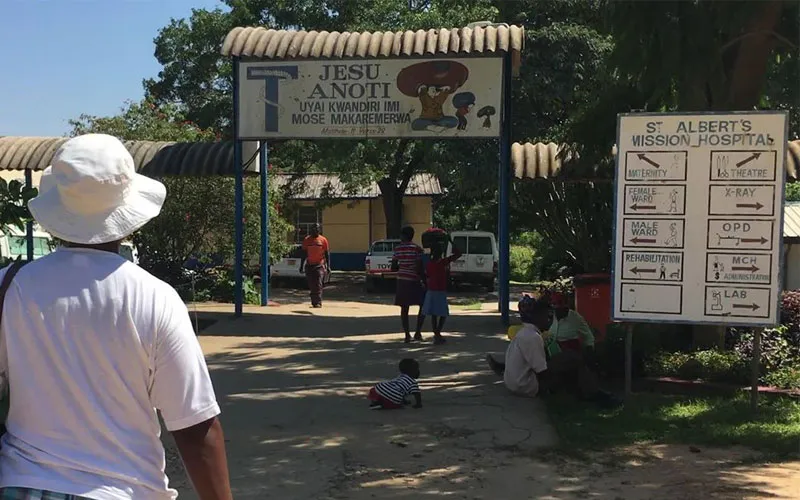Harare, 13 January, 2021 / 6:20 pm (ACI Africa).
Only seven nurses have been left to cover shifts at St Albert’s Mission hospital in Zimbabwe’s Archdiocese of Chinhoyi after their 26 colleagues tested positive for COVID-19.
Dozens of staff members at the Catholic-owned hospital have tested positive of the coronavirus, a situation that is “wreaking havoc” at the hospital, the leadership of the Diocese’s Social Communications has announced.
“One of our mission hospitals in the Diocese has been severely affected by the pandemic. A total of 34 staff members have tested positive for the virus at St Albert’s Mission Hospital in Centenary Mash Central. This includes 26 nurses,” the Diocese has reported on its official Facebook page Wednesday, January 13.
A staff member who spoke to the Diocese’s Social Communications leadership said that the hospital was on the verge of closing up shop owing to the limited workers.
“Last week the Hospital was about to shut its doors because those who tested positive and their contacts were on isolation and quarantine so there were only 7 Nurses on duty for all the shifts and the situation is terrible,” Mrs. Kangundu, the Hospital Matron said.








